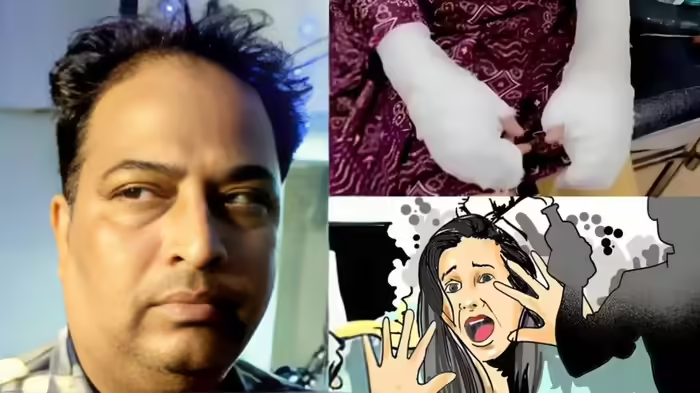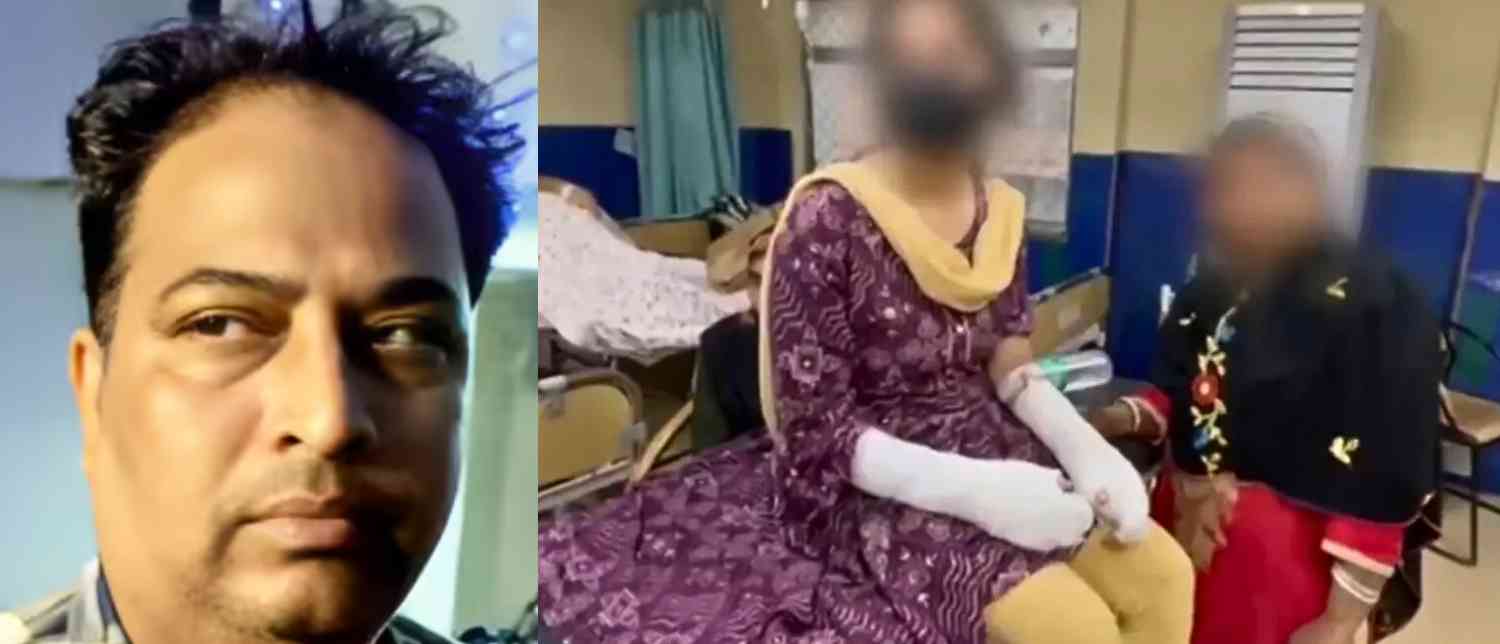The Delhi acid attack case, which initially shocked the nation with its horrifying narrative, has taken a dramatic and unexpected turn. What started as an alleged attack on a 20-year-old college student in northwest Delhi has turned out to be a complicated web of lies, revenge, and personal disputes, involving a confession, the use of toilet cleaner, and the arrest of the victim’s own father.

On October 26, 2025, a young woman reported that she had been attacked with acid by three men who had supposedly stalked her near Delhi University’s Laxmi Bai College. The nation’s attention quickly focused on the incident, sparking outrage and calls for justice, as acid attacks are amongst the most feared crimes in the country.
Within 24 hours, Delhi Police began to find inconsistencies. There was no clear CCTV evidence, and call records suggested that the alleged main accused, Jitender, was far away from the scene when the supposed attack happened.
The real shock came when the victim’s father, Aqeel Khan, was arrested and confessed to having masterminded the entire incident. He revealed that the liquid used was not acid but ordinary toilet cleaner, which his daughter had carried from home and poured on her hands. His plan was to frame three men he had previous disputes with, particularly after one of their wives had filed a sexual assault case against him.
The motive behind staging the attack was revenge. Aqeel Khan said that after being accused of rape by Jitender’s wife, he wanted to implicate Jitender and his associates. The daughter cooperated in order to support her father’s plan, leading to fake injuries and a false claim of being attacked. The police confirmed the burns were consistent with cleaning chemicals, not acid, and found further evidence that discredited the original story.

The public response to this twist has ranged from disbelief to anger. Acid attack cases often galvanize public sympathy, but the revelation that such a case could be fabricated for personal vendetta has left many unsettled. People are calling for stricter consequences for those who misuse laws and create false narratives, fearing it may undermine the credibility of real victims.
Social commentators have pointed out how such false cases can erode the seriousness with which genuine acid attacks are treated and might make it harder for real victims to get justice. Many are suggesting that the law should also be robust in dealing with those who frame others with fake cases.
This case is a reminder of the importance of thorough police investigations and not jumping to conclusions, no matter how emotional or shocking the matter seems at first. While acid attacks remain a grave and horrifying violence in Indian society, false cases can harm both the accused and future victims seeking justice.
Keeping perspective, it’s crucial to recognize that while such twists are rare, they highlight why both compassion and caution are needed in handling serious crimes. The police are now taking legal action against both the father and the daughter for plotting the fake story.

Ultimately, this incident cautions against the dangers of false accusations while also underlining the continuous need for society to support genuine victims of violent crimes. A false story should not distract from the very real pain of acid attack survivors everywhere, and the nation must ensure that justice and support are never compromised for anyone, under any circumstances.
With inputs from agencies
Image Source: Multiple agencies
© Copyright 2025. All Rights Reserved. Powered by Vygr Media.






















